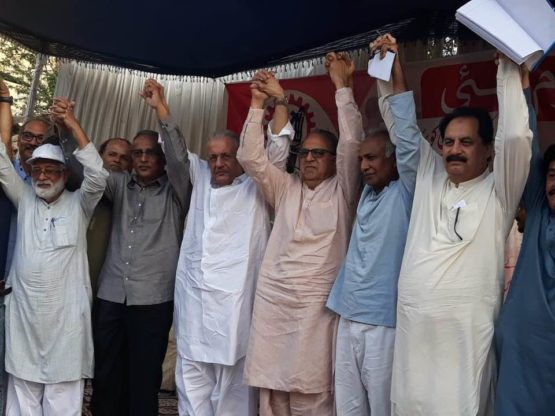- About
- Topics
- Picks
- Audio
- Story
- In-Depth
- Opinion
- News
- Donate
- Signup for our newsletterOur Editors' Best Picks.Send
Read, Debate: Engage.
| topic: | Economic Inclusion |
|---|---|
| located: | Pakistan |
| editor: | Shadi Khan Saif |
A public campaign in Pakistan has emerged following a 75% increase in power tariffs. Protesters are refusing to pay energy bills and calling for more taxation, as the skyrocketing cost of power has created an impossible cost of living for most Pakistanis, except for an elite class exempt from the measures.
The rising cost of power has compelled families to compromise on necessities such as food, education, and healthcare to pay their utility bills. Meanwhile, wealthy landlords, politicians, military personnel, and bureaucrats receive subsidies and other benefits, including free utilities, further exacerbating the inequality.
The UN Development Programme's (UNDP) National Human Development Report (NHDR) estimates at least $17.4 billion or 6 per cent of Pakistan's economy is wrongfully exploited by this elite, including a strong parliament representation. Meanwhile, Pakistan's marginalised communities, pushed to the edge of starvation, are left with no other option than civil disobedience and non-payment of bills.
The IMF has demanded an end to subsidies for the elite to tax the rich and assist the poor.
Pakistan is well endowed with rich natural resources and abundant avenues for renewable energy, putting it in an excellent position for a rapid transition away from fossil fuels. With its massive civilian and military workforce operating from energy-inefficient public offices, Pakistan will benefit its people and the environment if it lets go of its elitism.
A culture of modesty and service to the nation can only be nurtured in Pakistan if the elite stops engaging in state capture for personal gain and reflects on their actions.
With the elections just around the corner, Pakistanis can cast their votes in the direction of candidates who will serve them, not rule over them.
Image by Muhammad Ahmed.

